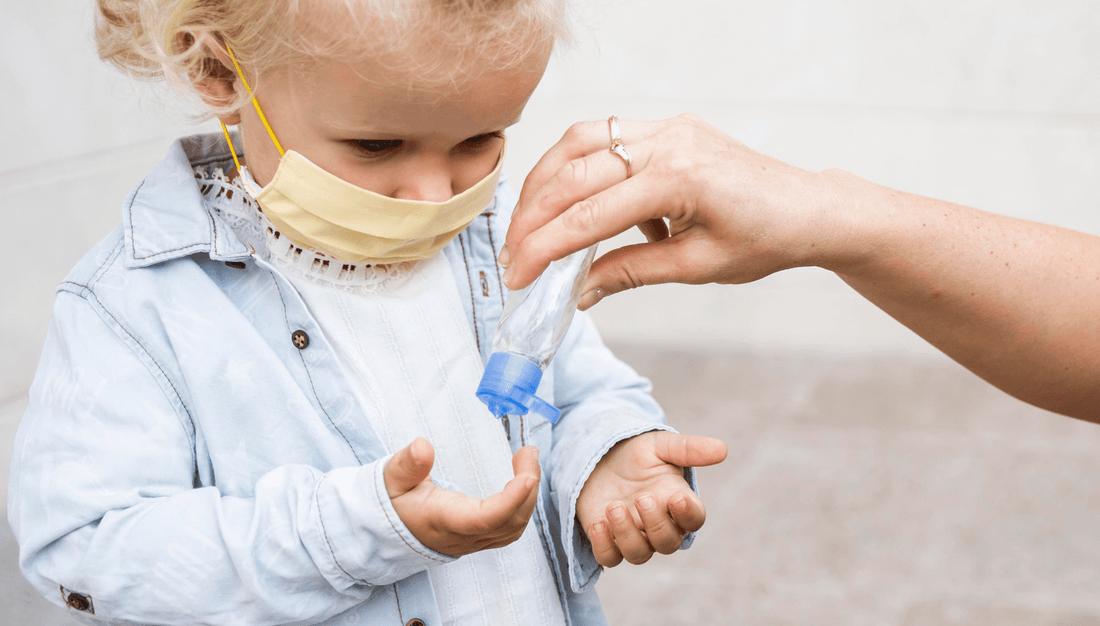Allergies in toddlers can be a bewildering and stressful experience for parents. Understanding the signs, symptoms, and treatments can make managing your child's allergies much easier. This guide will delve into the common types of allergies that affect young children, how to differentiate between allergies and other illnesses, and what steps you can take to alleviate your child's discomfort. Basically, everything you need to know about toddler’s allergies.
Can Toddlers Have Allergies?
Absolutely, toddlers can have allergies. While many people associate allergies with older children or adults, even very young children can develop allergic reactions. Allergies arise from an immune system reaction to a typically harmless material, like specific foods, pet dander, or pollen. If parents notice their toddler sneezing a lot or experiencing a cough and runny nose, it might be more than just a cold; these could be signs of toddler allergies.
Allergy Symptoms in Kids
Recognizing allergy symptoms in kids is crucial for early intervention and management. Some common kids’ allergy symptoms include:
- Sneezing: Frequent sneezing is a hallmark of allergies. If your toddler is sneezing a lot with no other symptoms, it might be worth considering allergies as a cause.
- Runny Nose: A constant runny nose is a typical sign of allergies.
- Watery Eyes: If your toddler has watery eyes and a runny nose, it could be due to allergies rather than a common cold.
- Cough: An allergy cough in kids often accompanies other symptoms like a runny nose and sneezing. For more information, check out our page on coughing up mucus.
- Skin Reactions: Eczema and hives are common skin reactions associated with allergies in toddlers.
Common Allergies in Toddlers
Toddlers can experience a range of allergies, each with unique triggers and symptoms. Understanding these common allergies can help parents recognize and manage their child's symptoms effectively.
Food Allergies
Food allergies are among the most common types of allergies in toddlers. Common culprits include peanuts, milk, eggs, tree nuts, soy, wheat, fish, and shellfish. Symptoms can range from mild (such as hives) to severe (such as anaphylaxis). If you suspect your toddler has a food allergy, it's important to consult with a pediatrician or allergist for appropriate testing and management.
Seasonal Allergies
Seasonal allergies, also known as hay fever, occur when your child is allergic to pollen from trees, grasses, or weeds. Symptoms include sneezing, a runny or stuffy nose, and itchy, watery eyes. These symptoms often worsen during specific times of the year when pollen counts are high.
Pet Allergies
Pets can be a source of joy, but they can also be a source of allergies for some toddlers. Allergy reactions can be brought on by pet dander, which is made up of minuscule, microscopic skin fragments shed by cats, dogs, rodents, birds, and other furry or feathered animals. Symptoms include sneezing, a runny nose, and itchy or watery eyes.
Dust Mite Allergies
Dust mites are minute, unseen creatures that thrive in household dust. They can trigger allergies in toddlers, leading to symptoms like a cough, runny nose, and itchy eyes. Keeping your home clean and dust-free can help manage this type of allergy.
Mold Allergies
Mold allergies can cause respiratory symptoms similar to those caused by dust mites and pollen. Mold can grow in damp areas of your home, such as basements, bathrooms, and kitchens. Symptoms include coughing, sneezing, and a runny nose.
Can Allergies Cause Fever in Toddlers?
While allergies can cause a wide range of symptoms, they typically do not cause a fever. If your 2-year-old's allergy symptoms include a fever, it may indicate an underlying infection rather than an allergic reaction. The question "Can allergies cause fever in toddlers?" often arises, but the answer is generally no. Allergies can cause significant discomfort, but fever is usually not one of the symptoms.
How to Know Whether It’s an Allergy or a Fever?
Distinguishing between allergies and a fever can be challenging. Allergies often present with symptoms like sneezing, a runny nose, and itchy eyes, but typically do not include a fever. In contrast, infections such as the common cold or flu are more likely to cause fever along with respiratory symptoms. If your toddler is sneezing a lot with no other symptoms, it's more likely allergies. However, if they have a fever, you might wonder, "Can a kid have a fever with allergies?" Generally, allergies do not cause fever, so you should keep them home and consult a healthcare provider to rule out an infection.
How Are Allergies Treated in a Child?
Treating allergies in toddlers often involves a combination of avoiding allergens, medication, and lifestyle changes. Here are some common approaches:
- Avoiding Allergens: The first step in managing allergies is to avoid exposure to known allergens. This might mean keeping pets out of certain rooms, using air purifiers, or avoiding certain foods.
- Medications: Over-the-counter antihistamines can help relieve symptoms such as sneezing, itching, and a runny nose. For persistent or severe symptoms, a doctor may prescribe stronger medications.
- Nasal Irrigation: Using saline nasal sprays or rinses can help clear nasal passages and reduce congestion.
- Immunotherapy: It may be advised to administer immunotherapy, or allergy shots, to certain kids who have severe allergies. In order to gradually develop tolerance, this treatment entails exposing the child to progressively higher concentrations of the allergen.
In conclusion, understanding and managing toddler allergies can significantly improve your child's quality of life. By recognizing kids' allergy symptoms and distinguishing them from other illnesses, you can take proactive steps to alleviate your child's discomfort. For more detailed advice and tips on managing symptoms like watery eyes, runny nose, and allergy cough in kids, explore our additional resources. Remember, while allergies can be challenging, they are manageable with the right knowledge and care.
References








